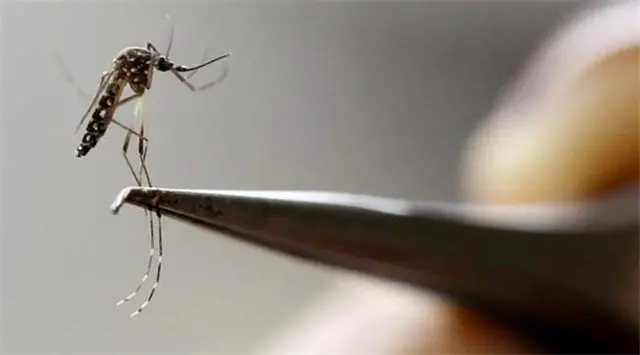The Japanese government on Friday pledged 1 million U.S. dollars in emergency aid to help Latin American countries tackle the Zika virus after a case was confirmed near Tokyo a day earlier.
The financial aid will be provided to the World Health Organization (WHO) and other international organizations, Foreign Minister Fumio Kishida said, while outlining Japan's intentions to help stop the virus spreading.
"Through cooperation with international organizations, Japan will help stop the spread of the virus and contain the disease, which will in turn prevent the further entry of the virus to our country," Kishida said at a press briefing Friday.
He added that the funding was earmarked for the ongoing efforts to gather further information on the extent of the virus' spread in Latin America, as well as to help with care for infected or at- risk expectant mothers.
Kishida also urged expectant mothers in Japan, or those who might conceive, to not travel to Latin American and said that the government will finalize an action plan for Japanese nationals living in affected regions, as well as issues pertaining to the summer Olympics, which will be held in Rio de Janeiro, Brazil.
On Thursday, Japan's Health Ministry confirmed that a male teenager in Kawasaki Prefecture, near Tokyo, had been infected with the virus following a trip to Brazil.
Ministry officials said the young male had visited Brazil for a 12-day vacation through Feb. 20 with his family and was found to have had a fever on the last day of his trip, with other symptoms such as a rash developing after his return to Japan.
The latest case in Japan is the fourth on record since three others were found to have been infected prior to the current epidemic, after trips to Bora Bora island in French Polynesia and Koh Samui in Thailand, in 2013 and 2014.
The World Health Organization has said that an outbreak of the virus, which can cause birth defects in new-born babies, was detected in Brazil in May last year, and is now a "public health emergency of international concern."
As the mosquito-borne virus continues to spread predominantly in Central and South America, the health ministry here has said that all domestic medical facilities are to report any cases diagnosed to the ministry.
The ministry also said that it intends to designate the virus in a category that requires that it must be reported to doctors and has made provisions for testing kits to be distributed to medical facilities around the country, while actively warning pregnant women at airports not to travel to countries affected by the virus.
It also said that quarantine stations to screen possible carriers may also be set up nationwide, following further government approval.
While a vaccine to treat the virus is currently unavailable, the health ministry tried to allay fears here about the virus - which has been linked to microcephaly, a condition marked by babies being born with abnormally small heads that can result in developmental problems - spreading, following Thursday's confirmed case.
"Japan at the moment is not in a season when mosquitoes are active. Risk of infection spreading is extremely low," the ministry said.
 简体中文
简体中文





